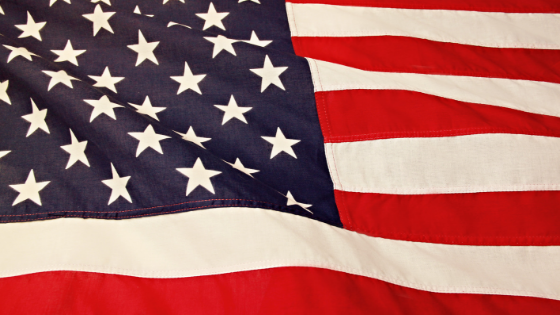Excerpt: “The next time you hear ‘Business needs certainty,’ remember this is at best a tale signifying nothing and at worst verbal fog meant to conceal a pickpocket at work.”
Exclusive: Curtis Ellis looks askance at ubiquitous claim about nature of business
[Curtis Ellis | July 6, 2019 | WND]
Turn on any business news channel and a Wall Street analyst will tell you “business needs certainty.”
They purport to have a deep insight into the mentality of the C suite decision makers, the peregrinations of the stock market and the workings of the economy, at once serious, important and profound.
If the market is down, they’ll tell you it’s because of uncertainty over trade talks with China, or the direction the Fed may take interest rates, or whether or not [fill in the blank] will happen.
We are expected to accept “business needs certainty” as axiomatic, without asking, “Is it true?” and if so, “Is it good?” and “what does it mean, anyway?” (The hidden corollary is that government, society or the universe is responsible for providing this much-needed certainty.)
But on closer examination, it seems “business needs certainty” is as self-obvious a statement as “the sun rises in the East,” not a profound insight.
Who doesn’t like certainty?
“Certainty” is why some people work for the government and others stay in a job they hate – the certainty of a paycheck.
It’s why we have leases, mortgages, contracts and courts to enforce them. Rule of law is a system of certainty, one that America has and other places don’t.
Yet America was not built on certainty. Quite the opposite.
The first settlers left family and country of birth (and all the certainties those encompass) for an uncertain future in an uncharted wilderness.
Like Caesar when he crossed the Rubicon or Alexander when he crossed the Indus, the founders of our country had no certainty of the outcome. They risked everything to challenge what was at the time the greatest power on Earth, with certainty they would be hanged if they failed.
The pioneers who set off on wagon trains across the prairie for free land in California knew they could die at the hands of hostile Indians, or in the snows of Donner Pass. The certainty they had was that anything worth having has a price, and the price involves death, difficulty and dirt.
When farmers plant a crop they have no certainty the early rain will come at the proper time, the late rain will not flood their fields at harvest time or a blight won’t come before the harvest.
The inventors and entrepreneurs who built today’s great companies (those enterprises we are told deserve “certainty”) did not want certainty. They abjured a paycheck and were willing to risk everything on a new idea or plan with no guarantee or a priori knowledge their enterprise would succeed. They were willing to accept the possibility of, and responsibility for, failure.
So, is this “certainty” business supposedly needs good?
The plea that government or society or “we” should provide business with certainty is disturbingly similar to the demand that the state or society or “we” should provide cradle-to-grave security for all, be it relief for indebted college graduates or health care for illegal aliens.
When business gets established and big enough, it often turns to big government to get certain relief from competition.
Monopolies and quasi-monopolies ahead in the race for market share want government regulators to wave the yellow flag and freeze competitors in position.
We witnessed this at the dawn of the 20th century, the birth of the administrative state, and we see it again with Mark Zuckerberg asking for government regulation in order to cement Facebook’s dominant position.
Regulators give princes of Silicon Valley “certainty” while working people are left with the uncertainties of the gig economy – and give up on raising families.
In the final analysis, we must ask, what does certainty mean, and where is it to be found?
The treasure maps the ancients left us reveal a paradox, for they direct us to look beyond time and space.
Joshua tells us, “Do not be afraid; do not be discouraged, for the Lord your God will be with you wherever you go.” (Joshua 1:9)
Yet this God the Israelites were told to trust is invisible, infinite, beyond definition and the faculties of reason, the very name unpronounceable.
Similarly, the person, rites and holidays of the Christian God Incarnate are described as Mysteries.
In something at once unknown and mysterious – the epitome of uncertainty – is where we are told to find the certainty needed to set forth on dangerous and uncertain journeys.
This concept is neither as strange nor as inexplicable as the secular and agnostic may suppose: Mathematics has proven that all systems of logic rest on assumptions outside the system – that is, on faith.
Back to the matter at hand:
The next time you hear “Business needs certainty,” remember this is at best a tale signifying nothing and at worst verbal fog meant to conceal a pickpocket at work.
Someone wants to be certain his or her profits will be maximized, but that’s not how the game is played.
It’s long odds, not sure bets, that pay off bigly.
Read the original article here.
Leave your comments below:













